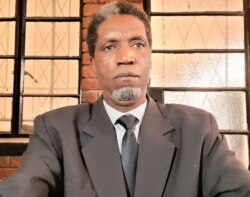Churches in Zimbabwe are questioning the government’s sincerity in allowing them to hold services for the vaccinated when only about 10% of the country’s population has been vaccinated against COVID-19. The government said this week that Christians who had received two shots could gather, a move some see as a way to drive up inoculation, given that more than 70% of the country's population is Christian.
This week, Information Minister Monica Mutsvangwa told reporters that the government had noticed a decline of new COVI-19 cases, therefore.
"Cabinet wishes to inform the public that churches can now allow sit-in congregants under the following conditions: only congregants who have received two doses of the [COVID-19] vaccine are allowed to attend," Mutsvangwa said. "And all Ministry of Health and Child Care and WHO protocols have to be adhered to. And those found in breach will be arrested including the leaders of the church.”
The government said it would not extend that permission to bars, as most drinkers were vaccinated and did not believe in the “mark of the beast,” theory which some church leaders were preaching to discourage congregants from getting vaccines.
On Friday, Blessing Makwara, general secretary of the Evangelical Fellowship of Zimbabwe said churches were still digesting the government statement, and will soon issue a statement to members taking note of.
"Number one, our acknowledgement of the government’s desire to contain the COVID-19 pandemic, two, our members’ varying position on COVID-19 vaccinations, three, the unavailability of enough vaccines to cover at least 60% of the population," Makwara said.
More than 1.9 million Zimbabweans out of a population of 14 million have received their first vaccination shots, and nearly 1.2 million have received their second inoculation. This is partly due to hesitancy among citizens and intermittent shortages of vaccines.
Harare-based political commentator Rejoice Ngwenya says the development should not be mistaken for the fear of God by the government of President Emmerson Mnangagwa and the ZANU-PF party.
"No! They have opened one eye towards election 2023. Hoping that perhaps even the so-called apostolic movement can be able to support them," Ngwenya said. "It is some sort of appeasement. Schools are not open, bars are not open, sports has not resumed, weddings and funerals are still under bondage. So I believe there is something to do with the cunning eye of ZANU-PF to be able to start canvassing for votes and using churches as a springboard for populist benevolence.”
Zimbabwe currently has 118,754 confirmed coronavirus infections and 4,047 deaths, according to the Johns Hopkins University, which is tracking the global outbreak.
The government says the vaccination program is intensifying, targeting what it calls hotspots. The number of cases has been rising lately, as the delta variant becomes more widespread.





